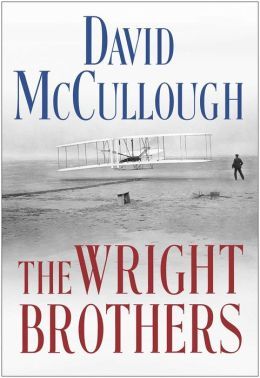

Purchase
The Wright Brothers, May 2015
Hardcover / e-Book
The Greater Journey, June 2011
Hardcover
1776: The Illustrated Edition, October 2007
Hardcover
1776, July 2005
Trade Size / e-Book (reprint)
1776, June 2005
Hardcover / e-Book
The Path Between The Seas: B002FK3U4Q, June 2004
Hardcover (reprint)
John Adams, September 2002
Trade Size (reprint)
Truman, June 1993
Paperback
Brave Companions, November 1992
Paperback
The Johnstown Flood, January 1987
Paperback
The Great Bridge, January 1983
Paperback
Mornings on Horseback, May 1982
Paperback
The Path Between the Seas, October 1978
Paperback
Simon & Schuster
May 2015
On Sale: May 5, 2015
ISBN: 1476728747
EAN: 9781476728742
Kindle: B00LD1RWP6
Hardcover / e-Book
Add to Wish List
Non-Fiction History | Non-Fiction Biography
Two-time winner of the Pulitzer Prize David McCullough tells
the dramatic story-behind-the-story about the courageous
brothers who taught the world how to fly: Wilbur and Orville
Wright. On December 17, 1903 at Kitty Hawk, North Carolina, Wilbur
and Orville Wright’s Wright Flyer became the first powered,
heavier-than-air machine to achieve controlled, sustained
flight with a pilot aboard. The Age of Flight had begun. How
did they do it? And why? David McCullough tells the
extraordinary and truly American story of the two brothers
who changed the world. Sons of an itinerant preacher and a mother who died young,
Wilbur and Orville Wright grew up in a small side street in
Dayton, Ohio, in a house that lacked indoor plumbing and
electricity but was filled with books and a love of
learning. The brothers ran a bicycle shop that allowed them
to earn enough money to pursue their mission in life:
flight. In the 1890s flying was beginning to advance beyond
the glider stage, but there were major technical challenges
that the Wrights were determined to solve. They traveled to
North Carolina’s remote Outer Banks to test their plane
because there they found three indispensable conditions:
constant winds, soft surfaces for landings, and privacy. Flying was exceedingly dangerous; the Wrights risked their
lives every time they flew in the years that followed.
Orville nearly died in a crash in 1908, before he was nursed
back to health by his sister, Katharine, an unsung and
important part of the brothers’ success and of McCullough’s
book. Despite their achievement, the Wrights could not
convince the US government to take an interest in their
plane until after they demonstrated its success in France,
where the government instantly understood the importance of
their achievement. Now, in this revelatory book, master
historian David McCullough draws on nearly 1,000 letters of
family correspondence—plus diaries, notebooks, and family
scrapbooks in the Library of Congress—to tell the full story
of the Wright brothers and their heroic achievement.
No awards found for this book.
Comments
No comments posted.
Registered users may leave comments.
Log in or register now!
| 


 © 2003-2025 off-the-edge.net
all rights reserved Privacy Policy
© 2003-2025 off-the-edge.net
all rights reserved Privacy Policy